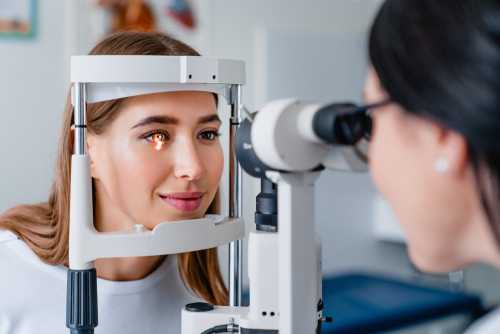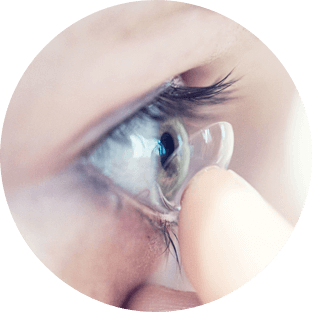What Does An Ophthalmologist Do?
Are you trying to figure out what the different types of eye doctors do and who you need to see? Are you overwhelmed by what’s available?
Trying to understand if you need to see an ophthalmologist, optometrist, or optician can be a lot. All you want is an eye exam. Now you’re also trying to determine what kind of doctor to see.
Finding the right eye care professional is important for keeping your eyes healthy. This is an important decision because you are trusting them to make sure that your eyes and vision remain healthy. Keep reading to find out more about what an ophthalmologist does!
What is an ophthalmologist?
An ophthalmologist is a medical doctor (MD) or a doctor of osteopathic medicine (DO) that specializes in vision and eye health. Ophthalmologists receive training to perform eye exams, treat and diagnose eye conditions, prescribe medications, and perform eye surgery.
They can write prescriptions for glasses, check that glasses fit properly, and prescribe contact lenses. Ophthalmologists are able to diagnose and treat eye conditions connected to other health problems like diabetes and arthritis.
Some ophthalmologists have training in plastic surgery. This allows them to treat conditions like raising droopy eyelids or smoothing out wrinkles.
Many ophthalmologists are part of scientific research on causes and remedies for vision conditions. Ophthalmologists differ from optometrists and opticians based on their amount of training and what they can diagnose and treat.
What kind of schooling does an ophthalmologist receive?
To become an ophthalmologist, you must complete four years of undergrad, four years of medical school, a one-year long internship, and at least three years in a hospital-based residency program focusing on ophthalmology. This level of education and training is comparable to that of an oral surgeon.
Ophthalmologists can practice medicine and perform surgery. Some eye doctors go a step beyond treating eye problems and conditions and decide to specialize in a specific area of surgical or medical eye care.
These eye doctors are considered specialists. To become a specialist, they usually spend another one to two years in a deeper learning experience or fellowship.
Ophthalmologists can specialize in glaucoma, the retina, pediatrics, the cornea, neurology, plastic surgery, and more. Completing a fellowship in one of these areas makes an ophthalmologist more equipped to treat more complex conditions in specific parts of the eye. It may also make an ophthalmologist more specialized to treat a specific age range.
What can optometrists treat?
Optometrists can treat most of the common eye conditions and some chronic ones. More complicated eye conditions require treatment by an ophthalmologist, especially if you need surgery.
You’ll have some eye conditions treated by a team of an optometrist and an ophthalmologist.
Figuring out what type of eye doctor you need to see can seem complicated. Now that you know more about what ophthalmologists do, we hope this reduces some of the confusion. If you are still confused, our team is here for you!
Concerned about your eyes? Schedule an appointment at Mid Ohio Eye in Columbus, OH with a member of our eye care team!














